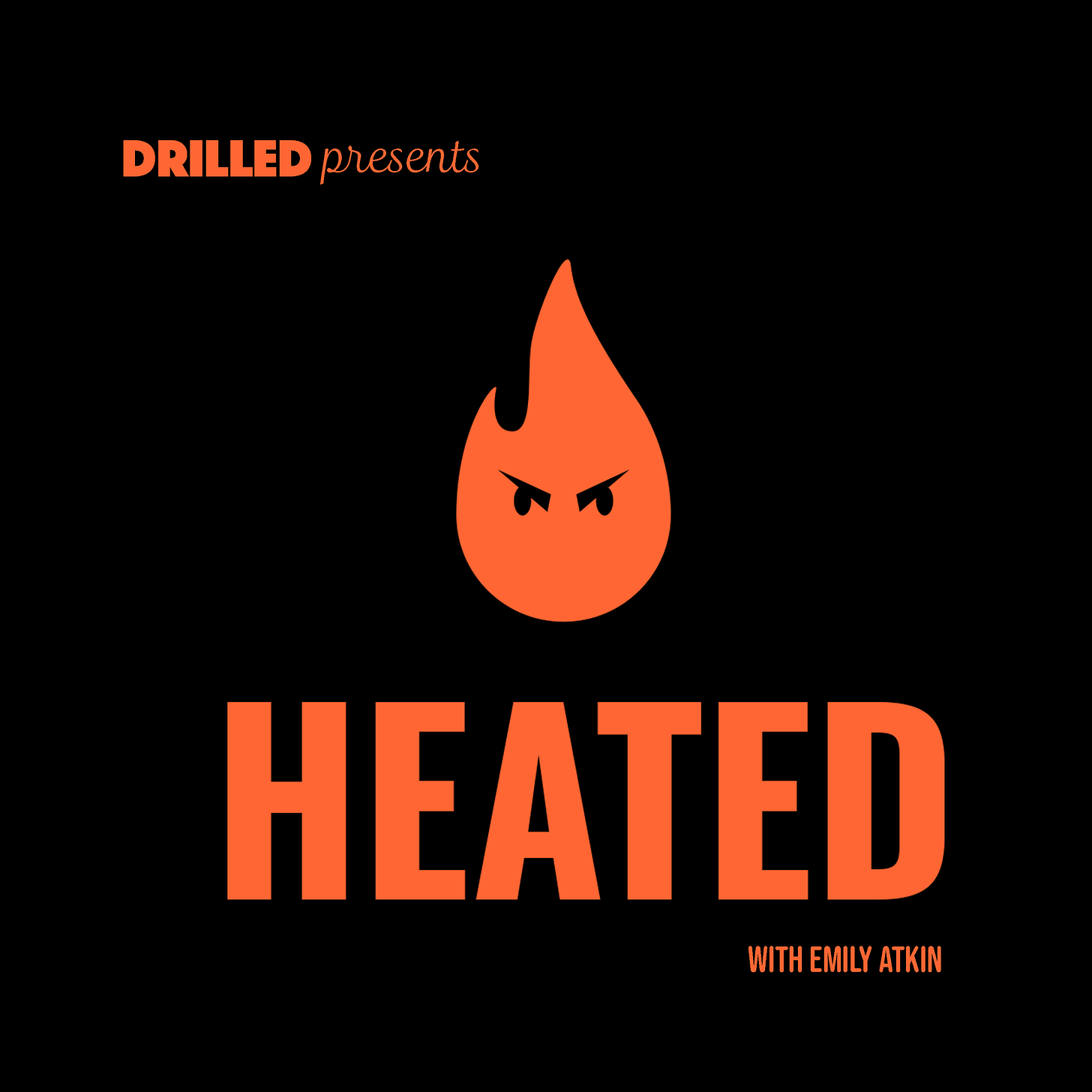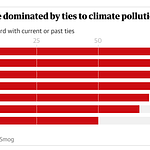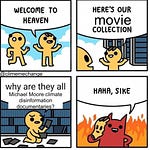
Below is a written transcript of my interview with lauded environmentalist Bill McKibben, author of The New Yorker’s Climate Crisis newsletter. It was featured in Episode 1 of the HEATED podcast, a limited-run, six-episode series created in response to the COVID-19 crisis. You can listen to the podcast by clicking the audio file at the top of this email. Or you can find it in your podcast app of choice by clicking HERE.
As tough as things are right now, I came away from my conversation with Bill reenergized on a basic truth: that working together for our common good isn't just the right thing to do. It actually makes us feel better.
It also made me really pissed off at everything, but like, what doesn’t, am I right???
You can help support the team behind this podcast, and I’ll tell you how at the bottom of the newsletter. For now, enjoy this interview with Bill. I know I certainly did.

Emily Atkin: Bill, welcome to the first ever episode of the HEATED podcast.
Bill McKibben: Emily, what a pleasure to join you and many, many thanks for doing this. It's important work.
EA: Thank you for being on, especially since we are such fierce newsletter competitors, you and I. How is the newsletter going for you?
BM: People seem to be reading it, so that’s good. I mean, [the newsletter is] called the Climate Crisis, but the emphasis, at least for the moment, is on the last of those words. We're living through a crisis that in certain ways mimics the climate crisis that I've been working on for 30 years. But this one is measured out not in decades, but in weeks. And in a weird way allows us, I think, as you point out, to see some of the dynamics of crises in general. I think we're probably learning a lot right now.
EA: How has coronavirus changed how you've been approaching your own work so far?
BM: Well, I've just been trying to write about my sense about what we're dealing with as we deal with coronavirus. And I think that, in fact, there's some obvious but profound points that lead directly into the larger discussion about the overwhelming, overlapping climate crisis.
Number one: I mean, look—from the day that I wrote The End of Nature in 1989, the basic point that I've been trying to get across to people about the world is that reality is indeed real, that you can't negotiate with physics and chemistry, that you can't compromise with them or spin them away. Coronavirus is teaching us precisely this lesson about biology, as well.
And that's a very useful thing, to have people reminded in the very nitty-gritty way that the world around them isn't, in the end, composed of screens or abstractions like the Dow index or something. In the end, is physical. It’s something that's hard for modern Americans to remember, myself included sometimes. And it seems to me that that's the beginning of the discussion here. Reality is real and sometimes it bites pretty hard.
EA: It reminds me of this line in Ed Yong's piece [about coronavirus] for The Atlantic: "We don't want to live in fear, but a virus doesn't care about your fear. It only cares about your cells." [Note: the actual line is, “Following 9/11, Americans resolved to not live in fear. But SARS-CoV-2 has no interest in their terror, only their cells.”] And it reminds me of what you're saying now. It reminds me of climate change. Climate change doesn't really care about the economy. It cares about physics.
BM: And what's interesting, for me, is that [coronavirus] not only echoes [climate change] in the kind of very large, broad sense; science is real, that's good to know. But it echoes it in a much more direct sense too. If there's one lesson that's applicable across both these crises, it's that time is your enemy and that acting quickly is what you desperately want to do.
You know the story here. Both the U.S. and South Korea had their first case of coronavirus on the 24th of January, I think. The South Koreans went to work, started testing everybody, started telling people, "Don't go to weddings." You know, adjust your lives.
So people did. It was disruptive. It was inconvenient. It cost money. But they are now more or less looking at this thing in the rearview mirror. The U.S., we did nothing. Trump started going on and on about how maybe it was a hoax or perhaps it would all just disappear on its own or it would go to zero or like a miracle it would vanish or so on. We didn't prepare, we didn't test, we didn't do anything.
So now we're having to take actions that are far more disruptive than anyone took in South Korea, and we're not going to get the payoff. Tens of thousands of people are going to die. And we're going to disrupt our economy in insane ways. The analogy to climate change couldn't be clearer.
EA: I hope it really pisses people off, too, because it really pisses me off. Honestly, because it's the exact same thing that's pissed me off about climate change, which is that we knew for a long time based on science what we needed to do to prevent lots of disruption, lots of catastrophe, lots of lives from being lost. And we didn't do it. And now it's on the backs of me and you to change our behavior and institute new social norms to try and pressure these fuckos to act. I'm sorry.
BM: And all the while, while we're all being unemployed and so forth.
EA: I really hope that the key lesson on both of these things is just, value public officials who understand science and reality and the implication of it, because this never had to be on mine and your shoulders. Obviously I feel very freaking guilty about a lot of the individual choices I've made, given the reality that I know. But the fact that I'm even in this reality, I'm sorry, just destroys my ability to not go into a rage spiral at all moments.
BM: One of the differences here, and it's a helpful one, is that in the case of the virus, there's happily not a trillion dollar industry whose job it is to spread viruses. So at least we're not dealing with that level of crazy denial, disinformation, deceit, whatever.
EA: What about the pharmaceutical industry? I know it's not their job to spread viruses, but there is financial interest there.
BM: I mean, clearly there's a deeper, broader financial interest—or at least in the Trump world of people thinking, "We should get back to normal.” They're clearly thinking poorly, because the thing about getting back to normal, stopping social distancing and things is: you're not going to have a well-working economy that's having to step around piles of bodies on the corner, you know? So clearly, it's as silly as arguing that the economy would be better off in not dealing with climate change.
Clearly, climate change in any rational calculation makes more sense to deal with, economically, sooner rather than later. But at least in this case, there's no functional equivalent of Exxon just hour-by-hour lying to us about what's going on.
EA: That's a good transition to what happened on the Internet the other day with you and some conservatives.
You tweeted the other day that you thought members of Congress should take the climate crisis into consideration when passing an economic relief bill for the coronavirus. You said, "Congress: don't waste this chance. If you're going to bail out corporations, in return demand that they take serious climate action. We could actually work on both crises at once!" And a lot of people did not like this tweet! I read yesterday in The Washington Examiner, which is sort of a conservative-leaning paper, that climate activists like you are using the current virus crisis to leverage your political agenda.
And so my question to you is, Bill: how dare you?
BM: I missed most of whatever the pushback is, because one of my social distancing maxims that I do my best to follow is: stay out of the comments section.
I just think it's completely obvious that if you're going to be spending trillions of dollars, you don't want to just set up the pins in the bowling alley again. You might as well use these moments to do something productive, especially since a lot of the industries that are asking for a bailout are precisely the ones that need to shift.
The Obama administration, which I've had my problems with on climate issues, actually is exemplary in this regard. You know, they used the bailout of the car companies in 2008 to make sure that GM and Chrysler agreed to dramatic increases in fuel economy requirements. It was probably the best thing that got done on climate during the Obama years, and that was the leverage they used. So obviously, Trump's not going to use that leverage. And it doesn't appear, at least in this round of stimulus bailouts, that Congress did much in the way of anything either, which is about what you'd expect from a chamber dominated by corporate libertarians.
I think that the the most revealing single action of almost any American so far was [libertarian-identifying Republican Senator] Rand Paul going and getting a coronavirus test because he had some symptoms, and then spending the next six days before the results of the test came back merrily wandering around the Senate and going to the Senate gym and swimming in the Senate pool.
EA: He swam in the pool! That made me scream at my computer. I was like, you have created a literal cesspool in Congress. Oh my God.
BM: If you ever want to really just understand what libertarianism is about, that's what it's about. “I don't have to worry about you at all. I just think about myself.” And that's been the dominant political philosophy in power in our country since the Reagan years in a lot of ways, and you see where it gets you. They've strived mightily to make government—what did Grover Norquist say?—"So small you could drown it in a bathtub."
Look, the government is so weak and incompetent that it can't, at this point, do the most basic tasks of government, protecting citizens from a threat like the coronavirus.
EA: I get the ideology of small government and of doing things for yourself. That as long as we all do the best for ourselves, we'll do the best collectively. I just don't get how that ideology works if we're dealing with global crises like coronavirus and climate change that absolutely require—based on physics, based on reality, not based on any ideology—collective action, how ideologies based on limited intervention work. And that's what I wish I would see from those ideologies, is really grappling with how to solve these global crises that, like you said, require—based on physics and reality—collective action.
BM: You'll wait a long time to see it, because that's not how reality functions.
I mean, for a long time, I think the equation in the minds of many right-wing thinkers in this country was: markets solve all problems. Markets are not solving global warming. Therefore, global warming is not a problem. Now, that's not a very good logical syllogism, but it's an emotionally comforting one. If you've spent the last 30 years marinating in Rush Limbaugh or something, that's sort of how you come to think. And you can see that same thinking bleeding over into dealing with this epidemic.
People have got to get real about the fact that it's not just that that kind of libertarian hyper-individualism is a disaster in terms of dealing with climate change or pandemics—it doesn't reflect who we are. We're socially evolved primates. We're eager to actually be of use to and help each other. It's not that long ago that we were all sitting on the floor of this savanna, you know, picking lice out of each other's fur.
EA: What I wouldn't give to pick lice out of somebody else's fur right now. Seriously. I've been quarantined for two weeks.
BM: The strangest thing about coronavirus, in a lot of ways, is that it reverses our normal response to crisis and disaster. You probably read that spectacular Rebecca Solnit book, Paradise Built in Hell. If you haven't, it's really one of the best books in years. I mean, Rebecca is one of the smartest people in the world, and a wonderful climate fighter. Among other things, she's worked hard at 350.org, and works really hard with the good people at Oil Change International.
What she said in Paradise Built in Hell, using examples that went back to the San Francisco fires in 1996, is that every time there is a natural disaster, people come together. They do not wait for governments to organize relief. In fact, governments often get in the way of organizing relief. What they do instead is quickly come together to do what needs to be done.
The thing that's very odd, very disconcerting, very painful about the coronavirus epidemic is the thing that we're told to do is stay away from each other. And that goes against every part of our nature, especially in times of crisis. And I think that's why it's so difficult. And I’ve got to say, though, part of me pretty firmly believes the world would be better off if we'd never invented the Internet, there's a lot to be said at the moment for having Zoom and things like that. The simulacra of community are a big help.
EA: First of all, how dare you speak ill of my boyfriend, the Internet. My only friend at this moment. But I totally understand what you mean. And it actually makes me think, when you say part of why this is so difficult is that it goes against our nature as people to be social and even to solve problems together—I think about climate change when you say that, because I think of how much better I feel and how other people feel—at least based on my experience—when they are participating in a collective action to try and solve a global problem, even if we aren't getting there as quickly as possible.
I feel like it sends these little brain chemicals, these little good brain chemicals into my head and my heart when I'm just working with other people and trying to solve a problem. When I'm doing it on my own or just sitting here stewing in it, it doesn't feel good. It's the opposite of those good brain chemicals. And coronavirus, us all being isolated, is showing us how on our own, it feels unnatural. It's not what it's supposed to be doing.
BM: It's lonely. Solidarity is—that's always been what the climate fight was about, right? A way to figure out how you could make the small and many powerful enough to stand up to the mighty and the few. And that's what organizing and movement building and all of that's about. And it is one of the reasons that we feel sort of impotent now in the face of this pandemic, because there's so little that we can do.
But people are demonstrating bravery in lots of ways. Some of them are exceptionally obvious: to watch health care providers go into under equipped hospitals day after day and do their thing knowing that their enormous risk of getting sick, that's real courage. It's also courageous to watch the people who are stocking supermarket shelves and things. That's also powerful, to watch people who are just figuring out how they're going to balance doing their job from home and taking care of their kids and making their families work in a really difficult situation for a while.
It's also always worth all of us remembering—I've spent a lot of time in the developing world because I've done a lot of organizing over the years in some of the poorest parts of the world. It's really hard and difficult for all of us, but just do the mental work of imagining what it's like to be locked down in India, where lots of people are living seven to a room in tiny hovels. There's an immense amount of pain and courage on display around the world right now. And that doesn't surprise me. People are, when they're called upon to be, wonderful and courageous, but it should move us some, too.
EA: As crappy and awful as coronavirus is, we do see those really heartwarming acts of solidarity, of community, of being creative, to figure out how to help each other because we're in a crisis. And I would love to see that same type of urgency about the climate crisis, the recognition that the climate crisis is just as urgent as this, when this is over—and even now, although I recognize that the threat to human life right now from coronavirus is much more urgent and apparent.
But the threat to human life from climate change is comparable, if not much more in the long run, right?
BM: Sure. I mean, absolutely. Climate change is by far the biggest thing that ever happened on the planet. And of course, one of the things that's true about it is, is that it's unleashed a series of public health challenges that are probably taken together as large as coronavirus.
One of the things that people are very much going to want to do as coronavirus recedes at some point, is return to normal, which is a completely normal response, you know, which is fine. And there's no reason that we can't have too many or most of the features of our life back. We just have to make a series of changes, most of them at a kind of large level, that allow us to have a world that works better than it's been working. Those are basic changes in political and economic ground rules. And if we can get them, then we'll be able to make serious and quick progress.
One way to think of it is, we've got the equivalent of the vaccine for coronavirus in that engineers spent the last decade dropping the price of a solar panel and a wind turbine by 90 percent. That was the key technological intervention that should allow us to get a large part of the climate crisis under control. If we would only put it fully to use, if we would only figure out how to overcome the type of nested series of vested interests and so on that have kept us from doing what we need to do.
And these are the things that you explore so brilliantly day after day in HEATED. That's what needs to be overcome, and it won't be overcome mostly by individual people making lifestyle changes—though plenty of those are possible, and I think we're reminded that they are possible and even useful in a lot of ways. But we mostly overcome by making a series of big political changes. And that's what we have to fight for.
One of the things that's at least temporarily annoying about the coronaviruses is we've had to suspend some of that work for the moment. We were gearing up to absolutely flood the banks on April 23rd. I think we were going to be able to have civil disobedience in the lobbies of half the Chase Bank branches in America, because Chase Bank is the biggest single funder of the climate crisis in the world. They've put a quarter trillion dollars into the oil industry since the Paris Climate Accords.
So we immediately called off that kind of stuff, and we'll figure out how to do some of it online and digitally and whatever. That's one of the normals that we have to pick back up when the time comes. We have to be citizens in profound ways.
EA: But there are opportunities to be citizens now, too, when it comes to climate change, even though we have to do social distancing, we're forced to be creative about those things.
BM: I've been maintaining for the last year or two that there are two distinct levers to pull on here. One of them is political and the other is financial. They're linked, Washington and Wall Street, but they're not the same. So we can continue to bedevil the financial institutions as well, going forward.
Look, if you've got a Chase credit card, a pair of scissors in your kitchen drawer, and a web cam, you can be a useful part of the fight for a financial system that doesn't operate as a kind of suicide pact. April 22nd, 23rd, 24th, there's gonna be this sort of 72-hour online ongoing Earth Day kind of extravaganza. It's being led by the climate strike youth, but joined in by all kinds of coalitions, including stopthemoneypipeline.com, and it'll be good. There'll be lots of interesting music and powerful witnesses of various kinds, including lots of people cutting up their credit cards.
So it's like we've suspended activity. The coronavirus stuff is so overwhelming that it's reshaping our sense of how the world works. And we won't know for sure for a while exactly how that plays out. But that which doesn't kill you makes you smarter, or at least one hopes it does. And given the pain and suffering that this is causing people, let's hope that we come out of it with some increased wisdom.
EA: And I feel like another thing that maybe would be useful is just if everybody who cared about climate change kept pointing out the power that misinformation—scientific misinformation, but also other types of misinformation—have had in worsening the spread of this problem. Almost trying to point out that science itself is powerful, but so is misinformation, and trying to push perhaps a narrative that when this is done we'll no longer accept people who don't think science is real.
BM: Open to that! And you've been doing that great work around schools and climate. Talk about that for a minute, just to give people a sense of how misinformation has been purposefully spread. I mean, this is the information equivalent of licking doorknobs, you know?
EA: I mean, yeah. Which is now even more horrifying given the circumstances. But yeah, right before I went on vacation, I published this series on climate change and public schools and how we are and aren't teaching climate change. And I sort of discovered through my own reporting and other people's reporting, that not only were we not teaching our kids about climate change in so many of our schools, but when we were, we were using lesson plans funded, and in some cases created, by the fossil fuel industry.
These lesson plans often very strategically downplayed certain aspects of climate change—like the fact that we would have to stop burning fossil fuels to solve it. But the fossil fuel industry also created lesson plans that would honestly scare the crap out of kids about what their lives might be like if they didn't have fossil fuels. There's this one in Oklahoma where Petro Pete has a nightmare, where he wakes up and there's no more fossil fuels. He doesn't have any clothes. He doesn’t have a toothbrush. He can't go to school. He doesn't have any ice cream when he goes to school. The ice cream part is pretty brutal.
He wakes up and he's like, "Wow, thank God for fossil fuels!" Then you're like, "Oh my god."
BM: So that's exactly what I'm talking about. And this is where we began. One hopes that the kind of splash of cold water that comes with scientific reality, that that may be one of the things that carries over.
EA: A lot of people don't know—and I didn't know this for a long time—that you are a fairly spiritual person, somebody who has faith. I think a lot of people are looking for some sort of guidance right now. I'm a fairly secular person, but I can appreciate some of that.
BM: My advice is: don't go to church on Easter, no matter what the President says. Christianity is supposed to be about spreading the good news, not about spreading viral infections. So stay out of church for a while.
EA: So do you have any good news for us then?
BM: The reason that I'm a Christian has everything to do with the fact that the gospels are the most radical book anyone ever wrote, you know? The entire point is loving one as neighbors, and that is the thing that we're called to do at all times. We're called to do it when it means figuring out how to arrange the world so that we don't drown our neighbors or make it impossible for them to grow food. And it's also what we're called to do when the main thing we can do for our neighbors this week is not give them lung infections.
People come at this from 1,000 different traditions and 1,000 different faith traditions and secular traditions, and there are 1,000 perfectly good ways to approach it. The only one that we know doesn't work, I think—and I think we now have endless empirical evidence of this—is the idea that if we all just think only about ourselves, we'll get where we need to go.
Fifty years of just thinking about ourselves has melted half the sea ice in the summer arctic. It's changed dramatically the PH of the oceans. I mean, you probably saw the story from this week, we just had a third great bleaching of the Great Barrier Reef in the last five years. It looks like this week’s was the biggest yet. We've lobotomized that interesting quarter of God's brain that is the coral reef. So, we can do this as long as our emphasis is on each other. And the thing that we're going through now is a good reminder of how much we like each other. So we should bear that in mind.
EA:What do you think is the most meaningful or the most effective thing somebody listening right now could do to address both of these things? I mean, to keep the climate crisis in their mind, while still obviously dealing with everything that they're dealing with with coronavirus.
BM: So the climate crisis is, in the end, a collective action problem above all else. And it requires that we come together in movements to organize in a counterbalance to the power that you write about all the time. For the moment, we can't physically come together, but we can still organize—and may even have a little time on our hands. Some of it clearly should be devoted to maximizing your sourdough starter game, and the other good things that people are figuring out how to do in their isolation.
EA:I'm learning TikTok dances.
BM: There you go. I don't even really quite know what that means, but I'm completely in favor of it. But some of it can be spent joining together with others to organize. That's where we have Fridays for the Future and 350.org and everybody else who's working on all this stuff. It's possible to carry on this fight virtually for a while, while we have to.
EA: I think it's so important to remember that that kind of stuff actually does make you feel better. I know we talked about that a little bit, but when I got back from Spain, I didn't work at all. I felt like I was useless, but I also felt like I had no energy to go back to work.
The moment I kicked my ass about it and went back to work and just said, "Just do something," I felt so much better. I felt so much more human and I think that we forget that—especially in isolation—that one small act, whether it be activism, journalism, something that you believe in to make the world a better place, will actually improve your mood. That's the thing I most learned from Greta Thunberg, which is how acts to improve the lives of others make you feel better.
BM: Absolutely. And by the way, it's very good news that Greta—she was kinda grazed by the virus—it sounds like her dad was pretty sick. But I think he's on the mend too. Which is all very good news.
Look, we are what we are. We talked about this earlier. We're social creatures and so part of our whole thing is to be helpful to each other. And right now there are constraints on how we can do that, but that doesn't mean we can't do it. And in some ways, it makes what we can do that much more precious.
And we're really grateful for the thing that you do every day, that newsletter that you put out every day. And as someone who does this once a week, I'm fully cognizant of the amount of work that it takes for you to be doing it. We're really grateful for it and its a big help. It's one of those connecting things. And connecting has never been more important than right now.
EA:Thanks Bill, I'm grateful for your work too.
BM: Emily, this has been really fun to do and I'm incredibly grateful to you for getting it started.
EA:I look forward to seeing what work comes out of it for you and for me too, because I'm still sort of taking it day by day. But I think that's what we all gotta do, right?
Bill McKibben: Amen to that.

OK, that’s it y’all! Thanks for checking out the HEATED podcast. We're producing this in collaboration with Drilled News. Thank you to Amy Westervelt for her partnership.
Really important, though—we're also producing this with you. All of us are looking for a way to make sense of what we're living through. And since we announced this podcast, the community has been saying “Hell yeah!!”
But here's the thing: there's no corporation or foundation paying for any of this. We're not part of a larger organization. It's just us.
The HEATED newsletter is a one-woman operation, but the podcast is produced by a team of four. And we're fronting everything because we believe these conversations are what the community expects from us. We want to be a useful part of your life.
We're in this together, and that's why I'm asking you to help cover the costs of making this series. 100 percent of what you give goes to production costs and supporting the four-person team who is producing it. Anything would be appreciated. But people have been saying that 30 or 60 dollars works for them. That breaks down to 5 or 10 bucks a podcast.
Your individual action, right now, to help cover these costs, will make a difference. Thirty or sixty bucks, or whatever works for you, would be amazing and deeply appreciated. Please, if you’re able, go to GoFundme and search “HEATED podcast.” Or you can click the button below.
The HEATED podcast is produced by HEATED, with support from Limina House. Our production team is my co-executive producer, Michael Ellcessor, Paul Chuffo is our engineer and producer, and Jessica Frantz runs our operations.
Thanks for being here. See you next time.

OK, that’s all for today—thanks for reading (and/or listening) to HEATED!
If you liked today’s issue/episode, please feel free to forward it to a friend. If you are a paid subscriber and would like to post a comment, click the “view comments” button below:
If you’ve been forwarded this email, and you’d like to support the spread of independent climate journalism that focuses on the powerful, become a subscriber today:
See you tomorrow!












Episode 1: Bill McKibben • That which doesn't kill you makes you smarter